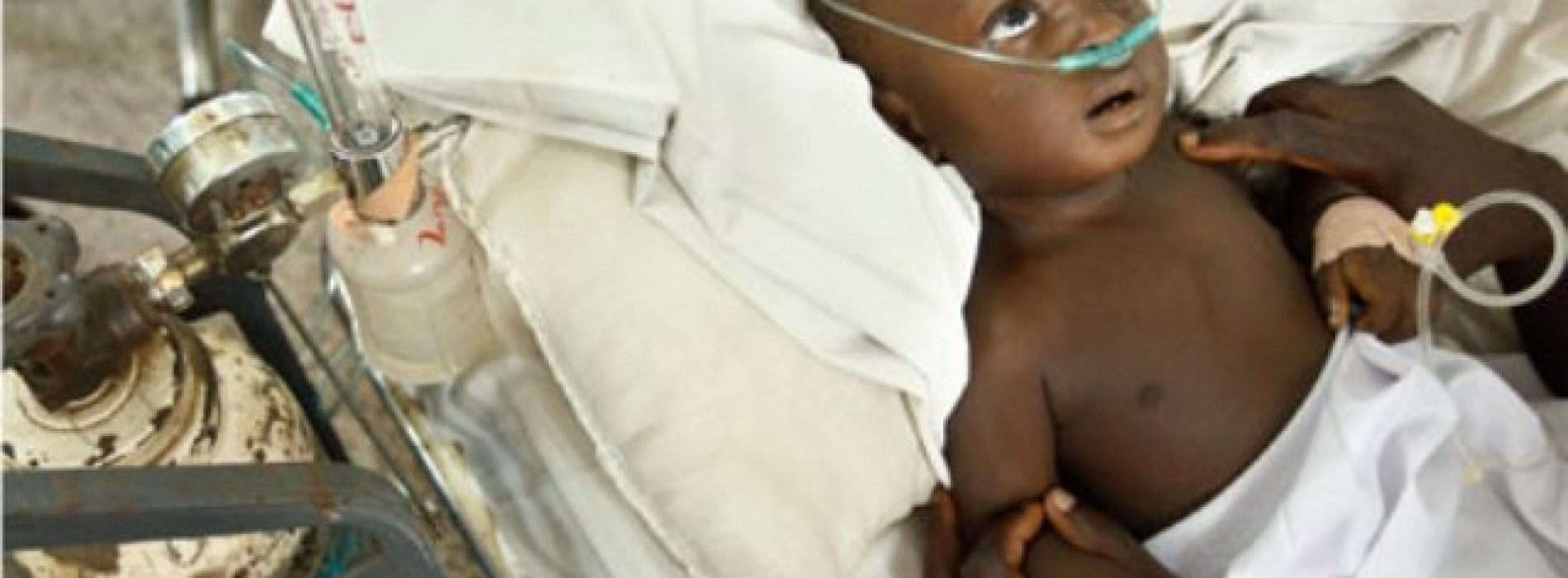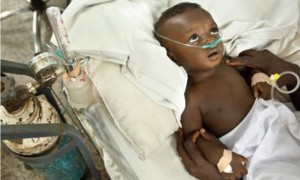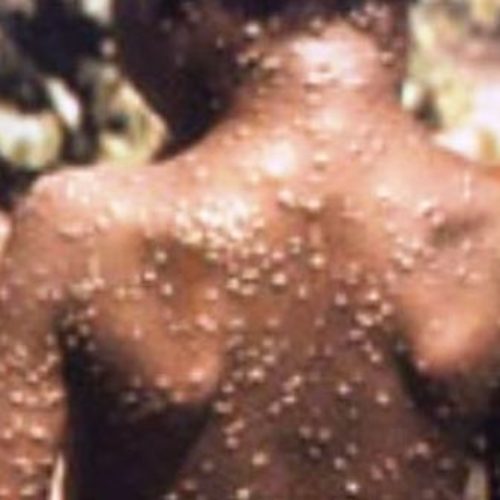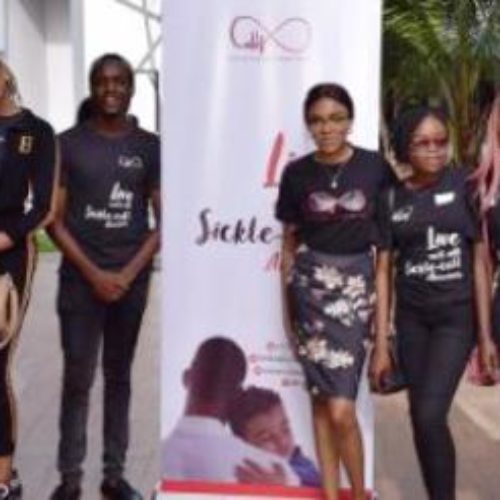Nigeria: ‘210,557 Kids Died From Pneumonia, Diarrhoea in 2015’
Since the beginning of this year, about 750,000 Nigerian children under the age of five years died, as a new report ‘The 2015 Pneumonia and Diarrhea Progress Report: Sustainable Progress in the Post-2015 Era’ has said.
Of these, 210,557 (28 per cent) died from pneumonia and diarrhea, making them respectively the second and third commonest causes of child deaths in Nigeria.
The Report was released yesterday the International Vaccine Access Center (IVAC) at the Johns Hopkins Bloomberg School of Public Health, documents the progress of the 15 countries experiencing the greatest burden of pneumonia and diarrhea.
Nigeria Country Lead, Johns Hopkins International Vaccine Access Center (IVAC), Dr. Chizoba Wonodi stressed how these deaths could be prevented.
She said: “Despite missing the Millennium Development Goal (MDG) 4 target, Nigeria has reason for cautious optimism. Under-five mortality dropped from 213 to 109 deaths per 1000 live births between 1990 and 2015 – a 49 per cent decline in the risk of child death. But 750,000 Nigerian children died in 2015, largely from preventable causes. So, while we have made good progress, we are still too far from fulfilling the “Promise Renewed” of ending preventable child deaths.
“Pneumonia is the number two killer of children in Nigeria, causing 17 per cent (127,000) of child deaths annually. Unfortunately, we are yet to beat pneumonia. From the year 2000 to 2013, the number of under-five children dying annually from pneumonia has remained practically unchanged. In contrast, child deaths from malaria and measles declined by 34 per cent and 97 per cent respectively.”
She noted how the Nigerian government had taken concrete steps to address this high child mortality, but noted that a lot more needed to be done.
Her words: “In 2012, the federal government launched the flagship Saving One Million Lives Initiative (SOML). This Initiative aimed to rapidly increase access to proven interventions across six maternal newborn and child health program areas. The SOML focuses on health outcomes rather than outputs or inputs. The core strategy is to employ performance management to drive accountability and action to reach specific targets on coverage of interventions and number of lives saved. In 2015, the World Bank boosted the program with 500 million dollars to ‘pay’ state governments for results on targets. While the SOML program is an opportunity to increase access to the multi-pronged ‘protect, prevent and treat’ strategies outlined by the WHO’s Global Action Plan on Pneumonia and Diarrhea (GAPPD), national coordination along the GAPPD strategies remains weak and implementation of the interventions variable.
Under ‘protect’, there has been no high-visibility effort to promote breastfeeding since the Baby-Friendly initiatives of the nineties. It is not surprising therefore that only 17 per cent of Nigerian children are exclusively breastfed, as against the GAPPD target of 50 per cent. Although
Nigeria women breastfeed their infants for long periods, most of them practice mixed feeding, which is not as protective as exclusive breastfeeding.”
She went on: “Similarly, Infant and Young Child Feeding (IYCF) practice is low in the country. In 2013, only 10 per cent of all children in the target group were fed according to three IYCF recommendations, with all geopolitical zones severely underperforming below the 90 per cent GAPPD target. Women must be encouraged and supported to feed their children only breast milk for the first six months of life and give appropriate complementary feeding when they are older.”
To move the agenda forward, she said a partnership for nutrition advocacy has begun working to raise awareness about breastfeeding and nutrition.
“This World Pneumonia Day, we celebrate the progress made in preventing pneumonia and reducing child deaths around the world. This year’s Pneumonia and Diarrhea Report demonstrates the need for sustainable progress as we move beyond 2015 toward achieving the Sustainable Development Goals. This means increasing equitable access to vaccines, diagnostic tools, and medication to prevent unnecessary pneumonia and diarrhea deaths,” said Kate O’Brien, Professor, Johns Hopkins Bloomberg School of Public Health and Executive Director of IVAC.
She added: “Vaccine introductions and scale ups, promotion of exclusive breastfeeding for the first six month of a child’s life, increasing access to appropriate pneumonia treatment, and ensuring sustainability for the post-2015 agenda are all required to put an end to these preventable diseases.”
Executive Director of the National Primary Health Care Development Agency (NPHCDA), Dr. Ado Muhammad noted how his agency was supporting efforts to protect and treat people against pneumonia
He said at the 2015 World Pneumonia Day in Abuja: “Vaccination against measles, pertussis, Streptococcus pneumonia, Haemophilus influenza type b (Hib) are all in our immunization schedule to prevent and reduce the burden of pneumonia; while plans are underway to introduce Rotavirus vaccine in the nearest future. Vitamin A supplementation for children (to reduce severity of diarrhoea and measles) has long been integrated onto our immunization programme).”
Meanwhile, a representative of Glaxo Smithkline and leading vaccine provider for pneumonia,Olakunle Oladehin said Nigeria’s sterling records in passing the Global Alliance for Vaccines and Immunisation (GAVI) eligibility test ensures it continues to get the pneumonia vaccines at a much cheaper price.
His words: “Currently Nigeria enjoys the GAVI eligibility criteria and the criteria for GAVI eligibility is that GDP has to be lower than a particular level, so we get promotion from GAVI, currently Nigeria is graduating out of GAVI because our GDP is improving.
“So we no longer get those vaccines. What GAVI has done is that it has negotiated prices with vaccine manufacturers and Nigeria doesn’t get the vaccines at the same price South Africa gets it because South Africa currently is not GAVI eligible.
“But Nigeria will be graduating out of GAVI in the next few years and what GSK has committed to do is to freeze the price that Nigeria will get those vaccines at the same price that GAVI is giving it at the moment, so at least for another 10years after graduation”.
Courtesy: The Guardian
About author
You might also like
It’s World Pharmacists Day
Pharmacists around the world today marked the World Pharmacists Day, a day set aside by the International Pharmaceutical Federation (FIP) to showcase the role of the pharmacist in improving health
Monkeypox: Lagos alerts residents
Calls for precautionary measures Lagos State Government has again urged citizens to ensure and maintain adequate personal and environmental hygiene at all times as part of precautionary measures to prevent
NGO launches comic book for young adults with sickle cell
By Rebecca Ejifoma A non-governmental organisation, Cells of a Generation (COAG), is set to unveil the Didi project, an educative comic book for young people living with the Sickle Cell








0 Comments
No Comments Yet!
You can be first to comment this post!